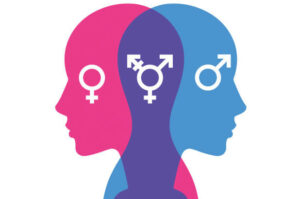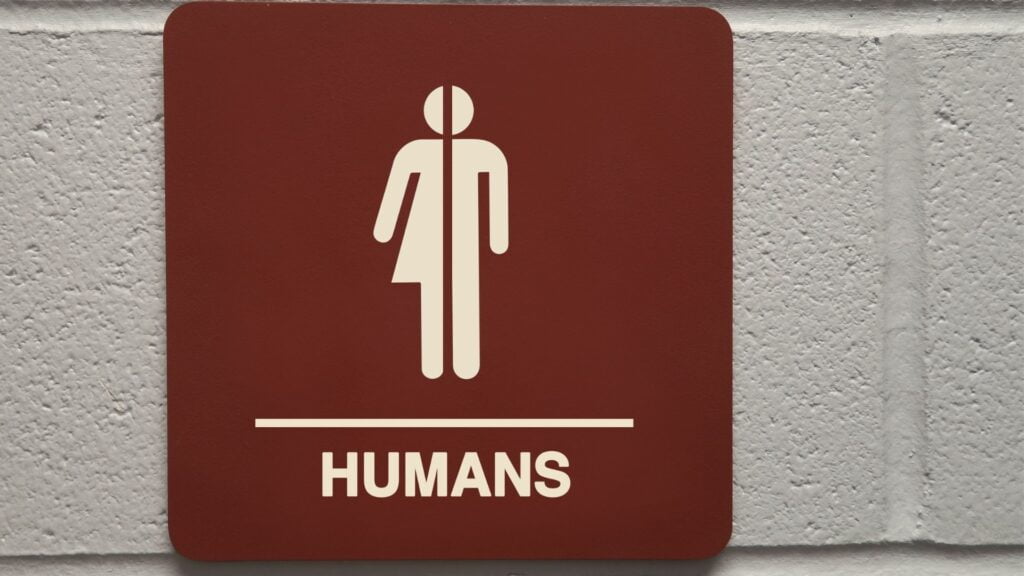Contents
- 1 What is Gender Dysphoria?
- 1.1 Symptoms Of Gender Dysphoria
- 1.2 Issues Faced By Gender Dysphoric People
- 1.3 Causes Of Gender Dysphoria
- 1.4 Gender Dysphoria In Children
- 1.5 Gender Dysphoria In Adults
- 1.6 How Parents Can Help Their Transgender Child?
- 1.7 Complications Of Gender Dysphoria
- 1.8 Diagnosis Of Gender Dysphoria
- 1.9 Treatment
- 1.10 Helping Someone With Gender Dysphoria
- 2 Conclusion
What is Gender Dysphoria?

Gender dysphoria is a feeling of unease with the gender assigned at birth, which can cause discomfort in social situations. A transgender person is someone who identifies as different than their biological gender. They might want to change their physical appearance so that people will see them the way they want to be seen. The word “gender dysphoria” was made up by an American doctor. It is used to describe people who are not their gender. The term was invented in 1966 when the book “The Transsexual Phenomenon” was written. Many people who have this condition, feel sad and anxious. They might not like themselves because of how they can’t choose what to wear or change their name.
To help these individuals feel more comfortable with themselves and decrease their dysphoria, they can seek psychological care. The treatment for gender dysphoria could include talk therapy and medications that calm anxiety or depression. This type of counseling is called “counseling” (or psychotherapy). It involves talking about feelings or problems with a therapist who has had training in this area. Some types of health insurance cover the cost of this type of treatment. People who don’t have insurance may be able to get help at a free or low-cost clinic for people with little money.
Symptoms Of Gender Dysphoria

A person’s gender identity is different from their assigned gender. This can happen when a person has been told what their assigned gender should be, but it is not the same as what they feel like.
- A mismatch between your inner gender and the sex characteristics of your body. This usually happens when you get older.
- People want to get rid of sex characteristics. People feel like they are not the same gender or that they do not want to develop sex characteristics because it will be hard for them.
- A person who wants the other gender’s sexual organs.
- A person can be of a different gender from what they were assigned. Some people have a strong wish to be the opposite gender or an alternate gender.
- If someone has a strong feeling of wanting to be treated like the other gender, they may feel like they are of an alternate gender.
- People who are transgender have feelings that are usually what the other gender feels. For example, when a girl plays with dolls, she might feel like it is a boy playing with them.
- Very sad people or people who cannot do things like they used to before might have this.
Some people feel like they don’t fit in because their body doesn’t match who they are inside. It can happen when you’re young and it might continue until you’re grown up. You can have periods where you don’t feel that your gender is wrong. And then the feeling comes back. You might feel like you want to change genders when you are a teenager. Or maybe you feel that way when it’s your first time taking puberty medicine.
Issues Faced By Gender Dysphoric People
If a person has gender dysphoria, there are many issues they may face. Some of the most common include:
- Distress about their body not matching who they feel like on the inside (this is also known as “discontent”)
- Negative stereotypes and discrimination from other people in society because of their identity; feeling like an outsider in both the transgender and cisgender communities
- Anxiety, depression, or other mental health issues
- Difficulties with relationships due to feeling misunderstood by others
- Self-harm behaviors such as cutting or suicide attempts
Not everyone who has gender dysphoria wants or needs treatment. However, for those who are experiencing distress, there are many treatment options available. Some of the most common include hormone therapy and surgery to help change their physical appearance. Others may just choose one or two treatments that they feel will benefit them. What works for one person might not work for another, so it is important to find a doctor who can listen and understand what each person needs.
Causes Of Gender Dysphoria
It is not clear what causes people to feel like they are supposed to be of the other gender. Some research has shown that these feelings may start in early childhood and can lead a person to change their physical appearance through hormones or surgery later on. Sometimes, people do not want to change the way they look. They are happy with the gender that is on their birth certificate.
Gender Dysphoria In Children

Gender dysphoria in children can be different than it is in adults. For example, a child might not know that they are transgender. They might have a strong preference for the clothes, toys, or games usually associated with another gender. Some children experiment by dressing up in the clothing of the opposite sex. Others may refuse to take part in activities that are normally considered appropriate for their assigned gender.
When children do show signs that they feel uncomfortable about their biological gender, parents can help them by taking them to a mental health professional. The therapist can help the child understand their feelings and decide if they want to transition to the other gender. If the child decides that they want to transition, the parents will need to support them through this process.
Gender Dysphoria In Adults

Gender dysphoria in adults is different than it is in children. For example, an adult might know that they are transgender and want to transition to the other gender. They might have a job and a family that they want to keep while making this change.
Adults who want to transition typically need to see a mental health professional for help. They should also see a medical professional make sure that they are healthy. It is important for those who want to transition, to be ready and feel as confident as possible about their decision.
How Parents Can Help Their Transgender Child?
There are many things that parents can do to help their transgender children feel more comfortable and accepted. For example, parents should allow their children to dress in the clothes that they choose. Parents can also support them by using a preferred name and correct pronouns such as “he” or “she”. Other ways parents can help include:
- Letting other people know about the transition so that the whole family can be supportive.
- Helping their transgender child find a therapist who can help them with the transition process.
- Finding transgender-friendly doctors and other service providers.
- Register their child for hormone therapy if it is prescribed by a doctor.
- Being there to listen and support their transgender child through every step of the transition process.
Gender dysphoria is a condition where a person feels like they are supposed to be the other gender, not the one they were assigned at birth. This can cause a lot of distress and impairment in their life.
Complications Of Gender Dysphoria

There are many complications that people with gender dysphoria may face. For example, they might have problems getting or keeping a job if their appearance does not match the gender on their birth certificate. They are also at risk for depression and anxiety because of how difficult it can be to feel like they don’t fit in with anyone else. People who undergo hormone therapy and surgery to transition can be at risk for complications as well. These include:
- Changes in mood or behavior, such as depression or aggressive feelings.
- Breast growth and other female changes if they take testosterone hormones.
- Fertility problems result from hormone treatments that block certain physical changes caused by puberty.
- Surgery risks like bleeding, infection, and anesthesia problems.
The best way to deal with gender dysphoria is by seeking psychological care from a professional who understands transgender issues. Parents can also play an important role in helping their children feel supported during this time. Both the child and the parents need to be as prepared as possible for the challenges ahead.
Diagnosis Of Gender Dysphoria

A doctor will take a mental health history, stress levels, and medical conditions. They may also talk to parents or other family members to see how the child has acted in the past. If they think that someone might have gender dysphoria, they will refer them for genetic testing (to check their chromosomes). This test can look at some of the genes that are related to gender identity.
Treatment
- If a person is diagnosed with gender dysphoria, there are many different types of treatment that they can receive. This includes psychological care. The goal of this type of counseling is to help the person feel more comfortable in their skin.
- Talk therapy is one type of counseling that can be used. This involves talking about feelings or problems with a therapist who has had training in this area. The therapist will help the person understand their thoughts and feelings about being transgender. They may also give coping skills to deal with any distress that comes along with it.
- Medications that calm anxiety or depression are also often prescribed. These medications can help the person feel better and decrease their dysphoria.
- Hormone therapy is another treatment that is often used. This involves taking hormones of the other gender to help change the body’s appearance. Some people also have surgery to change their physical appearance.
It is important to note that not everyone who has gender dysphoria wants to go through all of these treatments. Some people are only interested in hormone therapy or surgery. Others might not want any type of treatment.
People who don’t have insurance may be able to get help at a free or low-cost clinic for people with little money.
Helping Someone With Gender Dysphoria

If someone you know has gender dysphoria, it can be difficult to know what to do. You may feel like you want to help but don’t know-how. Here are some tips:
- Listen and show that you care about them.
- Do not force them to talk about their feelings or the transition if they don’t want to.
- Do not call them by their birth name or use the wrong pronouns. This can be hurtful.
- Educate yourself about gender dysphoria and transgender issues.
If you want to learn more, here are some resources:
- The Trevor Project – a national organization that provides crisis intervention and suicide prevention services for LGBTQ youth
- PFLAG – an organization that provides support, education, and advocacy for LGBTQ people and their families
- Gender Spectrum – a website with information about gender identity for parents, educators, and others
- The National Center for Transgender Equality – a national advocacy group for transgender people and allies
Conclusion
Gender dysphoric individuals experience a marked incongruence between their experienced gender and the sex they were assigned at birth. The diagnosis of “transsexualism” is typically reserved for those who are both transgender. They have persistent distress about this conflict. Transgender people may be heterosexual, homosexual, or bisexual in orientation. Some people feel like they are in the wrong body. They may want to live as a different gender. This can lead to depression or anxiety. It can also lead to self-harming behaviors, such as cutting or suicidal thoughts. Treatment options vary depending on the person’s level of distress and can include hormone therapy, gender reassignment surgery, voice training, or psychotherapy.
If you are looking for affordable Online Counseling MantraCare can help: Book a trial therapy session


